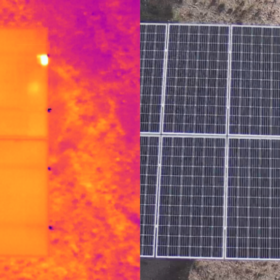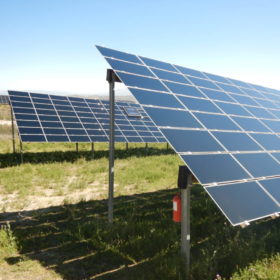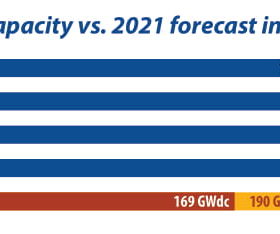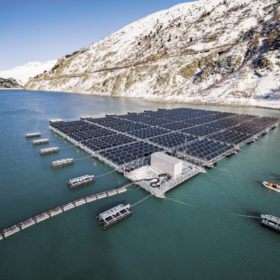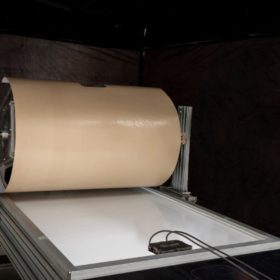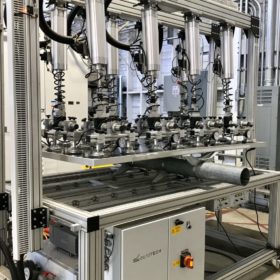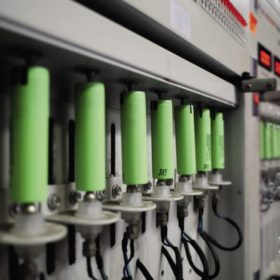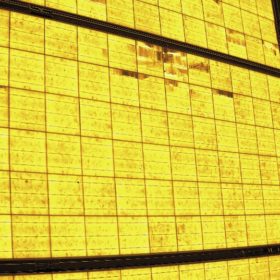SA Water deploys AI-powered drone technology to monitor its vast solar assets
SA Water, one of the largest water utilities in Australia and most ambitious when it comes to renewable energy, has partnered with aerial solar inspection and data analysis company, Above, to monitor the performance of its 360,000+ solar panels.
When does revamping pay off?
With projects in many PV markets ageing past the 10-year mark – with major leaps in technology having occurred in that time – revamping is a popular topic among asset owners. Pv magazine spoke with Asier Ukar, general manager of the Spanish subsidiary of German testing company PI Berlin, to uncover the benefits of revamping PV projects with new components and also to examine the challenges and risks involved.
Sunday read: Firm foundations on shifting sands
Unprecedented capacity expansions and massive technology changes, all happening at a frantic pace, signal that PV is entering the terawatt era. However, challenges in supply and demand imbalances across the value chain, combined with emerging technical and quality risks, require detailed analysis and due diligence from buyers to avoid pitfalls, according to George Touloupas, Joseph Johnson, and Aditya Vardhan from Clean Energy Associates.
Saturday read: Floating up to standard
Floating PV is a growing market, especially in Asian countries with land pressures. However, like many promising niches, it is growing faster than the standards surrounding it. With installed floating PV capacity set to double in 2021, a raft of various and sometimes competing standards are being floated, but the question remains – what is truly the best way forward?
Sunday read: A PV band-aid
DuPont has developed a repair kit for PV modules with backsheet failures. Cracked and chalking backsheets can cause problems for solar project owners, but this could easily be addressed in the field without swapping out the PV modules. Stéphan Padlewski, regional marketing leader EMEA at DuPont Photovoltaic Solutions, spoke to pv magazine about how the solution works.
Saturday read: rethinking degradation
PV module making is a brutally competitive industry. And for Slovenian module maker Bisol, in business since 2004, one of the keys to success has been to remain focused on the value its products deliver to the customer. And as company founder and CEO Uroš Merc explains, in 2021 this means reimagining module degradation.
A repair tape for cracked backsheets
Backsheet failures have plagued the industry, causing hefty financial burdens to many asset owners. DuPont has launched a product it says allows for easy repair of modules.
Module testing reveals increase in mechanical failures
Last week, testing specialists PV Evolution Labs launched its latest Module Reliability Scorecard, which names more than 100 products from 26 manufacturers as top performers, after being put through their paces in extensive lab testing. This year’s scorecard reveals an increase in modules seeing at least one failure during the testing procedure, with newly added mechanical stress procedures causing the greatest number of failures.
Sunday read: Battery testing builds certainty
Owners and operators of energy storage systems, as well as investors, need transparent ways to evaluate battery performance. They need certainty that the selected batteries for their ESS projects will perform reliably, have predictable life expectancies, and meet projected revenue and contractual obligations over their lifetimes. The economic viability of entire projects depend on this confidence, writes Michael Kleinberg of DNV.
Saturday read: Microcracks and module design
New cell and module technologies are boosting power outputs, but they often have implications for quality. A focus purely on cell cracking illustrates just this point, with some approaches proving beneficial, and others potentially problematic – cue Tristan Erion-Lorico from PV Evolution Labs (PVEL).
